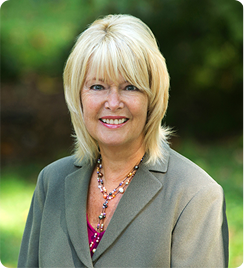
Ever want something to happen yesterday? Can’t wait until you leave a painful, current state to something better? This often occurs regarding health challenges and work issues. But just like we cannot push our bodies into health, we cannot drop into the perfect work.
Some people I meet want to change jobs, but there is not much urgency, just a dull ache. Others need it to happen now. Maybe they were laid off or their financial welfare is in jeopardy. They want a solution fast and yet how can that occur?
It’s an uncomfortable place to be in when your life feels out of control. There’s a quickening of your heartbeat, a shortness of breath, a looming dread. You aren’t at your best, but it’s often a time when you have to make important decisions.
Yvonne was in a job she disliked and wanted to change. But it was easier to go along with the familiar than stop and look for something better. As often happens, life took action without Yvonne. Her company was sold and half the employees were laid off, including Yvonne. While she received some severance, Yvonne was in a panic. She hadn’t looked for a job in 15 years and didn’t know where to start. She knew what she didn’t want, but wasn’t sure what was possible for her. The work world seemed unfamiliar and the application process she remembered had disappeared.
People may say, enjoy your “time off”, take a trip, don’t jump back into the 9-5 just yet. But most of us want the assurance that everything will be ok. That we will land with a better situation or at least an equivalent one financially. We still need to put kids through college, or contribute to our retirement funds, or pay off the mortgage. How can we rest now?
Yvonne was lost at first. She looked in the newspaper want ads; she looked online; she talked to some people. She really didn’t have a clear vision of what she was seeking. Just a good job that paid a satisfactory salary.
But, what if this was an opportunity? What if this was a gift of space for Yvonne to consider who she wanted to become next? Often we are so busy taking care of business, we lack time to dream. When I retired from my first career, my co-workers remarked I was so lucky. I asked why they didn’t leave and they said they didn’t know what to do next. Well, the hard truth is you have to figure it out.
Few people know exactly who they want to become when they begin college. They reach a solution through exploration, investigation, trial and error. Same thing happens when we are older and face a transition. It’s up to us to design our next step. No one can do it for you.
“The best teachers have showed me that things have to be done bit by bit. Nothing that means anything happens quickly–we only think it does. The motion of drawing back a bow and sending an arrow straight into a target takes only a split second, but it is a skill many years in the making. So it is with a life, anyone’s life…”
Joseph Bruchac
So Yvonne is at a crossroad. She can’t go back and to go forward requires some introspection. People change over time. The person Yvonne was 15 years ago is different than who she is today. Her interests, values, priorities, even strengths are slightly or greatly changed. Life has influenced Yvonne with her realization or not. She may have to take some time to get in touch with the current woman she is and then visualize the woman she hopes to become.
Many people I meet say they want to make a contribution by working at something they believe in. Money is necessary to support our lifestyles, but it may not be the driver it was when you were younger. Your priorities change with maturity, differing responsibilities, and with experience. You may not be sure what will bring satisfaction, but you can know what you want to leave behind. Life experiences bring life lessons to use in a new design.
So what can you do when you are at a crossroad?
Take a breath, look at what’s important to you
Explore alternative ways to work
Find role models and shadow them
Dip your toe in, see how it feels
Look ahead, not back
Happy traveling and see you on the path!















